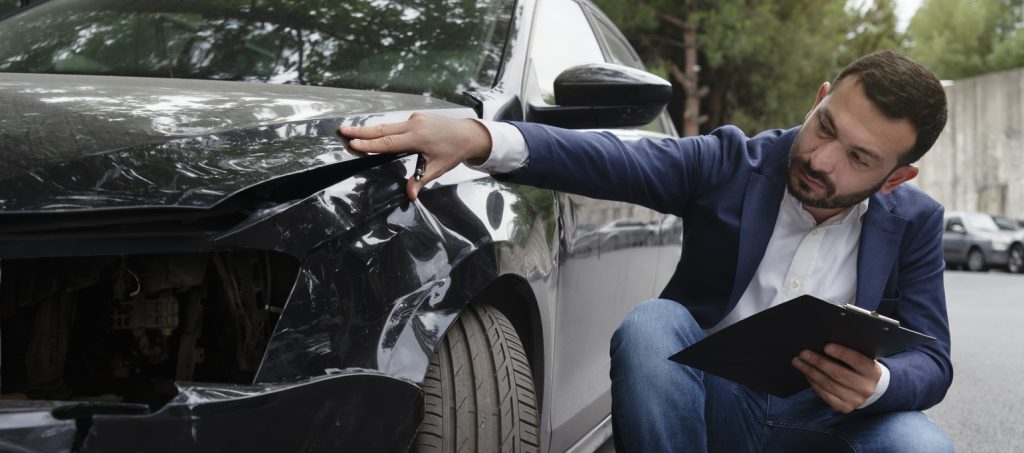Does My Car Insurance Cover Rental Cars? A Guide for Guelph Drivers
Does My Car Insurance Cover Rental Cars? A Guide for Guelph Drivers
Renting a car can feel like a hassle, especially when you’re unsure if your auto insurance has you covered. You might be wondering if you really need that extra rental insurance? For many Guelph drivers, this question doesn’t come with a simple yes or no. The truth is, coverage depends on the specifics of your individual policy and the circumstances of the rental, leaving room for confusion and costly mistakes.
That’s why we’ve created this guide to help clear things up. Whether you’re renting a car for a weekend getaway or while your vehicle is in the shop, understanding how your existing auto insurance interacts with rental coverage is essential. By the time you’ve finished reading, you’ll feel confident knowing exactly what’s covered and what’s not, so you can make informed decisions and hit the road with peace of mind.
Understanding Car Insurance for Rental Cars
Figuring out if your car insurance covers rental cars involves several factors. It’s important to understand the basics first.
In Canada, many personal auto insurance policies include rental car coverage. However, there are often specific conditions or limits. Key types of coverage that may extend to rental cars include:
- Liability: Covers damage you cause to others.
- Collision: Covers damage to the rental car itself.
- Comprehensive: Covers non-collision events like theft.
Each policy is unique. Reviewing your individual policy details is a must. Pay close attention to coverage limits and exclusions. Misunderstandings about rental car insurance are common. You must understand both your own policy and the rental agreement’s insurance requirements. Comparing these aspects helps avoid unexpected costs. It also ensures you have adequate coverage throughout your rental period.
Does My Auto Insurance Cover Rental Cars?
Your auto insurance might extend to rental cars, but check the specifics. Some policies automatically include rental coverage, while others do not. Identify what’s covered under your policy:
- Inclusion of rental cars under existing coverage
- Geographic limits (within Canada or elsewhere)
- Time restrictions for coverage use
Review your policy’s fine print or consult your insurance agent for clarification. Knowing these details prevents surprises when you pick up your rental car.
Another factor to consider is how claims on rental damages could affect your future premiums. Understanding your policy helps protect you from unexpected costs and rate hikes.
Do You Need Insurance to Rent a Car?
Technically, you don’t always need to purchase additional insurance when renting. However, you must ensure you have some form of coverage.
Rental car companies offer their own insurance options and waivers. These may include:
- Loss Damage Waiver (LDW)
- Supplemental Liability Insurance
- Personal Accident Insurance
Before accepting rental agency coverage, check what your auto insurance policy provides. This could save you unnecessary costs. Credit cards often offer rental car insurance as a perk. Understanding how this works with your auto insurance can lead to smarter coverage decisions. Always verify terms and conditions to maximize your protection without spending extra.
Will Insurance Pay for a Rental Car During Repairs?
Needing a rental car while your vehicle is in the shop is common. Whether insurance covers this depends on your policy specifics. Some auto insurance policies include rental car coverage when your car is being repaired after an accident. This is often termed “rental reimbursement” coverage.
Check if your policy offers rental reimbursement. Factors can include daily rental limits and maximum coverage amounts.
- Daily Limit: This is the maximum amount insurance will pay per day.
- Total Coverage: This is the overall maximum coverage for the rental duration.
If rental reimbursement isn’t included, you might need to pay out-of-pocket or add this coverage. Understanding these details ensures you’re not left stranded while your car is repaired.
When Coverage Applies
Insurance typically pays for a rental car after an accident if you have rental reimbursement. This coverage usually kicks in when repairs are made under a covered claim. Situations where this coverage might apply include:
- Accidents where you’re not at fault
- Events covered under comprehensive or collision policies
Make sure you confirm the specific circumstances they cover with your insurer. Often, documentation from the repair shop and a claims adjuster may be required to initiate rental coverage.
When Coverage Does Not Apply
There are situations where your insurance might not cover a rental car during repairs. This typically occurs if rental reimbursement isn’t part of your current policy. Instances where coverage does not apply can include:
- Non-covered events, like regular maintenance.
- Exceeding rental reimbursement limits set in your policy.
Understanding these limitations helps in planning rental needs. In such cases, you might consider purchasing additional coverage from the rental company or updating your policy. Be proactive to avoid unexpected rental car expenses during vehicle repairs.
Does Car Insurance Cover Rental Cars in All Situations?
Car insurance isn’t one-size-fits-all when it comes to rental cars. The coverage can vary widely based on several factors. Understanding these nuances can prevent you from being caught off guard. Policies often vary in what they cover for rental cars. Some cover a wide range of scenarios, while others are more limited. It’s crucial to examine your auto insurance policy specifics or consult your insurance provider.
Typical scenarios include:
- Domestic Travel: Coverage in your home country may be more comprehensive.
- International Travel: Insurance might not extend globally.
These distinctions are vital, as they affect how you prepare for rental situations. Ensure clarity about these coverage boundaries before signing any rental agreement.
Many people have misunderstandings about insurance. It’s important to look into when your insurance covers you and when it does not. Many drivers assume they have rental car insurance, only to find gaps in unexpected situations. Being informed about these distinctions minimizes future stress and helps you make informed decisions.
Domestic vs. International Rentals
For domestic rentals, your personal auto insurance often provides ample coverage. This applies when you rent a vehicle within Canada or even some places in the United States. Be sure to confirm these details with your provider. Common domestic coverage includes:
- Liability: Protection similar to your personal vehicle.
- Collision: Typically extends for damages during rental period.
For international rentals, coverage is less certain. Many providers don’t extend coverage beyond domestic borders. In such cases, you may need to purchase extra coverage through the rental agency. Always check international policies if your travel plans include renting a car abroad.
Business vs. Personal Rentals
The purpose of your rental car can also influence insurance coverage. Personal trips often enjoy broader coverage compared to business rentals, and personal auto insurance typically covers these activities without additional fuss. However, business-related rentals may require:
- Commercial Policy: Extra coverage specific to business needs.
- Employer: They might provide coverage if you’re traveling on company business.
Always consult your insurance policy before renting. Business travelers should speak with their employer to understand if business-related rentals are covered. Understanding these distinctions ensures you’re covered regardless of your rental purpose, preventing hassles and unexpected costs.
How to Ensure You’re Covered for Rental Cars
Securing adequate coverage for rental cars can save you from unexpected expenses. Begin by reviewing your current auto insurance policy in detail. Look for sections that mention rental car insurance coverage. This will give you clarity about what’s included.
Next, don’t hesitate to ask your insurance provider for guidance. They can inform you about any coverage gaps and advise on additional protections. If your policy lacks coverage for rentals, consider adding an endorsement or rider. Moreover, contact the rental car agency. They often offer supplemental insurance options. Evaluate these options based on your needs and budget. Key elements to consider include:
- Liability Coverage: Ensures you’re protected against third-party claims.
- Collision Damage Waiver (CDW): Covers damage to the rental vehicle.
- Personal Effects Coverage: Protects your belongings in the car.
By actively researching and asking the right questions, you ensure complete coverage during your rental period. Planning ahead brings peace of mind, knowing you’re protected on the road.
Rental Car Insurance for Guelph Drivers
Understanding your car insurance policy is crucial before renting a car. Not all policies offer rental car coverage. It’s important to verify the specifics with your provider.
If your coverage is insufficient, consider supplemental insurance options. These could include waivers offered by rental agencies or credit card protections. Knowing which additional coverages are available helps avoid unexpected costs.
Here’s a quick checklist for Guelph drivers when renting a car:
- Review your auto insurance policy for rental car terms.
- Clarify coverage limitations with your insurance provider.
- Consider additional protections like CDW from the rental agency.
- Assess if your credit card offers any rental car insurance benefits.
By taking these steps, you ensure peace of mind during your car rental. When you’re ready, connect with the team at Jeffery & Spence for a personalized quote on car rental insurance that gives you the coverage and confidence you need on the road.









